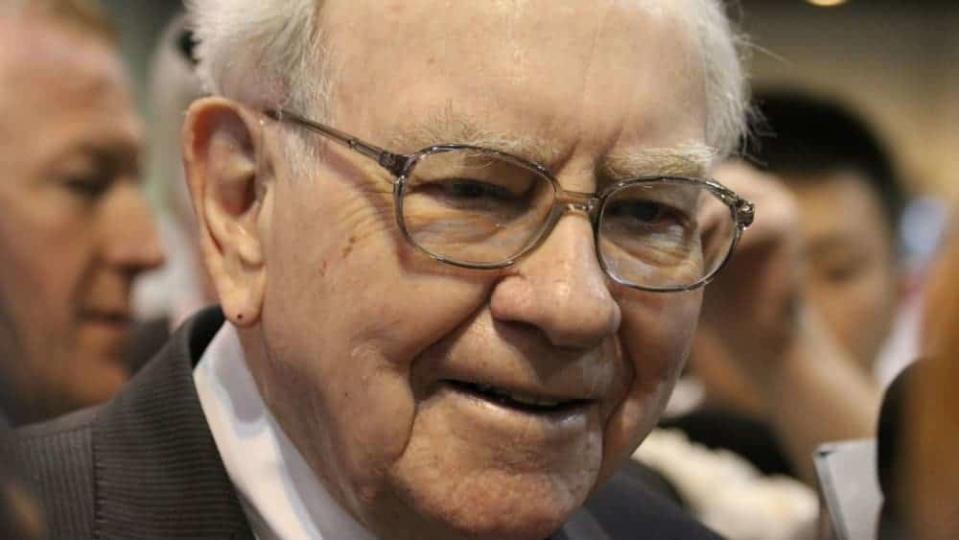2 Canadian Stocks Part of Warren Buffett’s Portfolio

There are few investors with a track record as impressive as Warren Buffett. Also known as the Oracle of Omaha, Buffett’s investing report card has been exemplary, to say the least. Here we look at two Canadian stocks that are part of Berkshire Hathaway’s portfolio according to recent SEC filings.
Suncor Energy
Suncor Energy (TSX:SU)(NYSE:SU) is a Canada-based energy company. It has three primary business segments that include Oil Sands, Exploration & Production, and Refining & Marketing.
Suncor generates close to 79% of sales from Canada while the United States accounts for 15% of revenue. At the end of the September quarter, Berkshire Hathaway held 10.75 million shares in Suncor which represented a less than 1% stake in the company.
Suncor stock was severely impacted in the last quarter of 2018. Investors lost over 30% in market value between July and December 2018 as the Canadian energy sector was hit by surging supply overloaded pipelines.
This caused transportation bottlenecks dragging down prices to less than US$15 per barrel while prices south of the border remained above US$50.
Suncor managed to recover from the lows experienced in late 2018. The stock has gained close to 18% in just over a year. Its integrated business model has helped the firm reduce volatility and optimize the supply chain.
Let’s see how the company is trading in terms of valuation. With a market cap of $68.73 billion, Suncor is a domestic giant. It is valued at 1.7 times forward 2019 sales. Analysts expect sales growth of 1.7% in 2019 and marginal growth of 0.1% in 2020.
Over the next five years, Suncor is expected by analysts to improve earnings per share at an annual rate of 11%. Compare this to its five-year estimated PEG ratio of 1.3 and we can see that the stock is reasonably valued after considering its dividend yield of almost 4%. Suncor has a payout ratio of 51%, giving it enough room to increase dividend payments.
Restaurant Brands International
Restaurants Brands International (TSX:QSR)(NYSE:QSR) has over 23,000 quick-service restaurant outlets in North America. Its brands include Tim Hortons (TH), Burger King (BK) and Popeyes Louisiana Kitchen (PLK).
In 2018, TH accounted for 61.5% of sales followed by Burger King at 30.8% and PLK at 7.7%. Canada accounted for 55.7% of revenue in 2018 while the United States accounted for 33.3% of sales.
At the end of the September quarter, Berkshire Hathaway held 8.4 million shares in QSR, which represented a 1.6% stake in the company. QSR is another domestic giant with a market cap of $24.3 billion and an enterprise value close to $40 billion.
In terms of valuation, investors might seem to view QSR as somewhat overvalued. The stock is trading at a forward price to earnings ratio of 27.7 while its earnings per share are estimated to grow by 2.7% in 2019, 10% in 2020 and at an annual rate of 6.3% in the next five years.
The five-year estimated PEG ratio stands at 3.7 times earnings, which can be considered above average for a company growing sales at an annual rate of around 4.5%. QSR’s price to sales ratio stands at 4.42, while its price to book ratio is 10.4.
The company has a forward dividend yield of 3.1%, and with a payout ratio of 80%, it has limited opportunity to significantly increase its dividend payments.
QSR stock has declined close to 25% since August 2019 due to less than impressive Q3 results as well as concerns over its valuation. I had then cautioned investors about the stock’s expensive valuation.
Both these stocks, however, remain solid long-term picks, as they have strong fundamentals and the backing of arguably the world’s top investor.
More reading
The Motley Fool owns shares of and recommends Berkshire Hathaway (B shares). The Motley Fool recommends RESTAURANT BRANDS INTERNATIONAL INC and recommends the following options: long January 2021 $200 calls on Berkshire Hathaway (B shares), short January 2021 $200 puts on Berkshire Hathaway (B shares), and short January 2020 $220 calls on Berkshire Hathaway (B shares). Fool contributor Aditya Raghunath has no position in any of the stocks mentioned.
The Motley Fool’s purpose is to help the world invest, better. Click here now for your free subscription to Take Stock, The Motley Fool Canada’s free investing newsletter. Packed with stock ideas and investing advice, it is essential reading for anyone looking to build and grow their wealth in the years ahead. Motley Fool Canada 2020

 Yahoo Finance
Yahoo Finance 